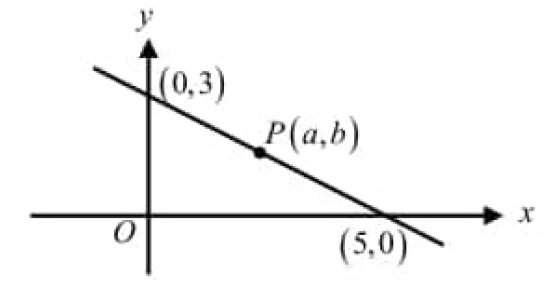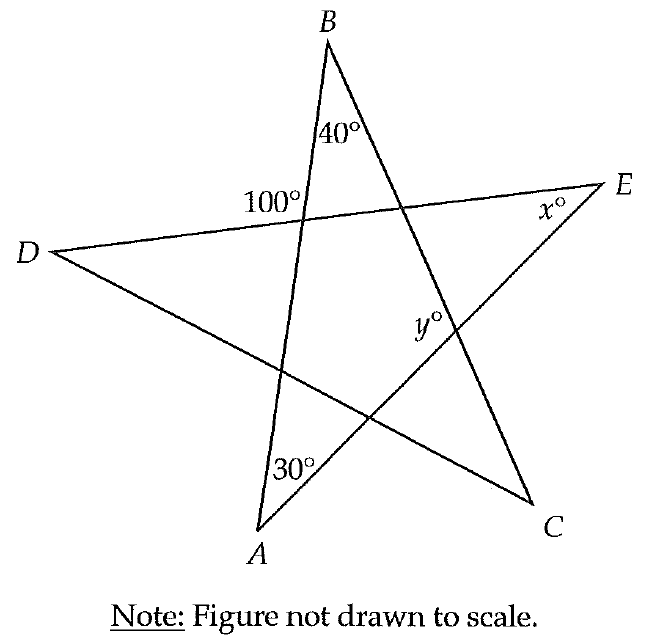EXPANDING BRACKETS TO THE POWER OF 2
Expansion of Binomials with Power 2
(a + b)2 = (a + b)(a + b)
(a + b)2 = a2 + ab + ab + b2
(a + b)2 = a2 + 2ab+ b2
(a - b)2 = (a - b)(a - b)
(a - b)2 = a2 - ab - ab + b2
(a - b)2 = a2 - 2ab+ b2
Expansion of Trinomials with Power 2
Expansion of (a + b + c)2 :
(a + b + c)2 = (a + b + c)(a + b + c)
(a - b)2 = a2 + ab + ac + ab + b2 + bc + ac + bc + c2
(a - b)2 = a2 + b2 + c2 + 2ab + 2bc + 2ac
Expansion of (a + b - c)2 :
To get expansion for (a + b - c)2, let us consider the expansion of (a + b + c)2.
(a + b + c)2 = a2 + b2 + c2 + 2ab + 2bc + 2ac
In (a + b + c)2, if c is negative, then we have
(a + b - c)2
In the terms of the expansion for (a + b + c)2, consider the terms in which we find 'c'.
They are c2, bc, ca.
Even if we take negative sign for 'c' in c2, the sign of c2 will be positive. Because it has even power 2.
The terms bc, ac will be negative. Because both 'b' and 'a' are multiplied by 'c' that is negative.
Finally, we have
(a + b - c)2 = a2 + b2 + c2 + 2ab - 2bc - 2ac
Expansion of (a - b + c)2 :
To get expansion for (a - b + c)2, let us consider the expansion of (a + b + c)2.
The expansion of (a + b + c)2 is
(a + b + c)2 = a2 + b2 + c2 + 2ab + 2bc + 2ca
In (a + b + c)2, if b is negative, then we have
(a - b + c)2
In the terms of the expansion for (a + b + c)2, consider the terms in which we find "b".
They are b2, ab, bc.
Even if we take negative sign for 'b' in b2, the sign of b2 will be positive. Because it has even power 2.
The terms ab, bc will be negative. Because both 'a' and 'c' are multiplied by 'b' that is negative.
Finally, we have
(a - b + c)2 = a2 + b2 + c2 - 2ab - 2bc + 2ac
Expansion of (a - b - c)2 :
To get the expansion of (a - b - c)2, let us consider the expansion of (a + b + c)2.
The expansion of (a + b + c)2 is
(a + b + c)2 = a2 + b2 + c2 + 2ab + 2bc + 2ca
In (a + b + c)2, if b and c are negative, then we have
(a - b - c)2
In the terms of the expansion for (a + b + c)2, consider the terms in which we find 'b' and 'c'.
They are b2, c2, ab, bc, ac.
Even if we take negative sign for 'b' in b2 and negative sign for 'c' in c2, the sign of both b2 and c2 will be positive. Because they have even power 2.
The terms 'ab' and 'ac' will be negative.
Because, in 'ab', 'a' is multiplied by "b" that is negative.
Because, in 'ac', 'a' is multiplied by "c" that is negative.
The term 'bc' will be positive.
Because, in 'bc', both 'b' and 'c' are negative.
That is,
negative ⋅ negative = positive
Finally, we have
(a - b - c)2 = a2 + b2 + c2 - 2ab + 2bc - 2ac
Expansion of Trinomials with Power 2 - Summary
(a + b + c)2 = a2 + b2 + c2 + 2ab + 2bc + 2ca
(a + b - c)2 = a2 + b2 + c2 + 2ab - 2bc - 2ca
(a - b + c)2 = a2 + b2 + c2 - 2ab - 2bc + 2ca
(a - b - c)2 = a2 + b2 + c2 - 2ab + 2bc - 2ca
Instead of memorizing all the above expansions, we may memorize the first expansion and apply values of b and c along with signs.
Expanding Brackets to the Power of 2 - Practice Questions
Question 1 :
Expand :
(5x + 3)2
Solution :
(5x + 3)2 = (5x)2 + 2(5x)(3) + 32
(5x + 3)2 = 25x2 + 30x + 9
Question 2 :
Expand :
(3x - 2)2
Solution :
(3x - 2)2 = (3x)2 - 2(3x)(2) + 22
(3x - 2)2 = 9x2 - 12x + 4
Question 3 :
Find the value of 1052.
Solution :
1052 = (100 + 5)2
1052 = 1002 + 2(100)(5) + 52
1052 = 10000 + 1000 + 25
1052 = 11025
Question 4 :
Find the value of 992.
Solution :
992 = (100 - 1)2
992 = 1002 - 2(100)(1) + 12
992 = 10000 - 200 + 1
992 = 9801
Question 5 :
Expand :
(5x + 3y + 2z)2
Solution :
(5x + 3y + 2z)2 :
= (5x)2 + (3y)2 + (2z)2 + 2(5x)(3y) + 2(3y)(2z) + 2(5x)(2z)
(5x + 3y + 2z)2 = 25x2 + 9y2 + 4z2 + 30xy + 12yz + 20xz
So, the expansion of (5x + 3y + 2z)2 is
25x2 + 9y2 + 4z2 + 30xy + 12yz + 20xz
Question 6 :
Expand :
(x + 2y - z)2
Solution :
(x + 2y - z)2 :
= x2 + (2y)2 + z2 + 2(x)(2y) - 2(2y)(z) - 2(x)(z)
(x + 2y - z)2 = x2 + 4y2 + z2 + 4xy - 4yz - 2xz
So, the expansion of (x + 2y - z)2 is
x2 + 4y2 + z2 + 4xy - 4yz - 2xz
Question 7 :
Expand :
(3x - y + 2z)2
Solution :
(3x - y + 2z)2 :
= (3x)2 + y2 + (2z)2 - 2(3x)(y) - 2(y)(2z) + 2(3x)(2z)
(3x - y + 2z)2 = 9x2 + y2 + 4z2 - 6xy - 4yz + 12xz
So, the expansion of (3x - y + 2z)2 is
9x2 + y2 + 4z2 - 6xy - 4yz + 12xz
Question 8 :
Expand :
(x - 2y - 3z)2
Solution :
(x - 2y - 3z)2 :
= x2 + (2y)2 + (3z)2 - 2(x)(2y) + 2(2y)(3z) - 2(x)(3z)
(x - 2y - 3z)2 = x2 + 4y2 + 9z2 - 4xy + 12yz - 6xz
So, the expansion of (x - 2y - 3z)2 is
x2 + 4y2 + 9z2 - 4xy + 12yz - 6xz
Kindly mail your feedback to v4formath@gmail.com
We always appreciate your feedback.
©All rights reserved. onlinemath4all.com
Recent Articles
-
Digital SAT Math Problems and Solutions (Part - 134)
Apr 02, 25 12:40 AM
Digital SAT Math Problems and Solutions (Part - 134) -
SAT Math Resources (Videos, Concepts, Worksheets and More)
Apr 02, 25 12:35 AM
SAT Math Resources (Videos, Concepts, Worksheets and More) -
Digital SAT Math Problems and Solutions (Part 135)
Apr 02, 25 12:32 AM
Digital SAT Math Problems and Solutions (Part 135)

